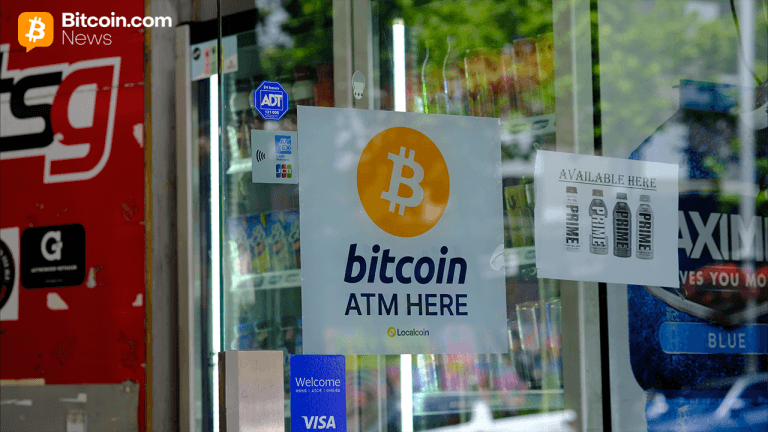Microstrategy Founder Michael Saylor to Argentines: ‘You Need Bitcoin’ — Critics Insist BTC Is Too Volatile – Featured Bitcoin News
3 min read
Micheal Saylor, the founder of Microstrategy, has told people living in inflation-stricken Argentina that they now “need bitcoin.” While many bitcoiners have welcomed Saylor’s suggestion, a few critics have said the top crypto asset’s volatility makes it an unsuitable alternative for the faltering local currency.
The Dollarization Option
As the Argentinian currency — the peso — continued with the slide that has seen it depreciate by more than 40% over the past twelve months, Micheal Saylor, the founder of Microstrategy, has chimed in by tweeting that people living in the South American country now “need bitcoin.” In a subsequent tweet, Saylor, a bitcoin critic turned advocate, also shared news about the South American country’s inflation rate after it topped 7.58% per day.
If you live in Argentina?? right now, you need #bitcoin.
— Michael Saylor?? (@saylor) April 22, 2023
The tweets by Saylor, whose firm is one of the largest corporate holders of BTC, came as reports suggested that some Argentinian politicians favor replacing the peso with the U.S. dollar. As reported by Bitcoin.com News, the Argentinian presidential aspirant Javier Milei has said dollarization can put the brakes on inflation, which officially stood at 103.4% in March.
Milei, who is seen as a frontrunner in presidential elections set to be held on Oct. 22, said he plans to shut down the central bank before starting the dollarization process. Steve Hanke, a professor of applied economics at Johns Hopkins University, has similarly suggested the South American country can only escape its present predicament by dollarizing.
Argentina has turned into an over-indebted IMF deadbeat. By my measure, the Argentinian peso has depreciated against the USD by 52% since Jan 1, 2022. ARG must dump the peso and dollarize NOW. Argentina, THE WORLD’S BIGGEST DEADBEAT. pic.twitter.com/4HyFei1WzO
— Steve Hanke (@steve_hanke) April 25, 2023
Yet, despite the apparent widespread support for dollarization in Argentina, critics of the U.S. dollar, including Saylor’s followers on Twitter, have voiced their support for his call on residents to choose bitcoin instead.
Policy Brief: Argentina’s Fiscal Imbalances Will Not Go Away After Dollarization
However, some of Saylor’s followers on Twitter like Manu Ferrari B, a self-proclaimed “liberty maximalist,” have said BTC is too volatile and therefore it cannot be a viable alternative to the falling peso just yet. The user suggested that while it is possible for a bitcoin-backed stablecoin to become the solution, more still needs to be done. He added:
But the whole tech is not ready, yet. Most bitcoiners not living in Argentina, Líbano, Venezuela will not understand this. Most bitcoiners talking about Argentina don’t know what they are talking about. Completely centralized stablecoins running on fiat legacy rails are also not a solution.
In addition to being an expensive undertaking, dollarizing the Argentinian economy would result in the country’s central bank becoming subservient to the policies of the U.S. Federal Reserve. Dollarizing would also see the country’s central bank losing seigniorage — the profit earned from printing currency.
A policy brief published by the Policy Center for the New South on April 28, 2022, described the calls for dollarizing the economy as the “revival of a zombie idea.” Denouncing the Argentinian Congress’ proposal to retain the greenback as the country’s primary currency, the brief warned that the country’s “fiscal imbalances will not be eliminated by dollarization.” The brief also said dollarization would further require “a selective default of domestic currency liabilities, a brutal devaluation, and/or a unilateral conversion of public deposits.”
What are your thoughts on this story? Let us know what you think in the comments section below.
Image Credits: Shutterstock, Pixabay, Wiki Commons, DCStockPhotography / Shutterstock.com
Disclaimer: This article is for informational purposes only. It is not a direct offer or solicitation of an offer to buy or sell, or a recommendation or endorsement of any products, services, or companies. Bitcoin.com does not provide investment, tax, legal, or accounting advice. Neither the company nor the author is responsible, directly or indirectly, for any damage or loss caused or alleged to be caused by or in connection with the use of or reliance on any content, goods or services mentioned in this article.
Read disclaimer




